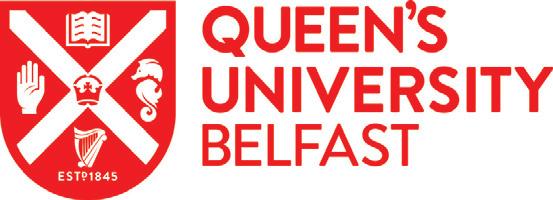
4 minute read
Other Clinical and Non-Clinical Medical Careers
Other Clinical Careers
Of course, the delivery of medical care involves an interdisciplinary team of other medically trained professions, including; nurses (of many types), midwives, physiotherapists, paramedics, occupational health therapists and so on. These days, most of these career paths also require a specialised first degree and sometimes a postgraduate degree too. For example, to become a clinical psychologist requires a BSc in psychology and a Doctorate in Clinical Psychology. For more details see the relevant job profiles at the Prospects website: https://www.prospects.ac.uk
Advertisement
Optometry
In the UK there are around 15 universities currently running approved degree courses in optometry which would qualify you to work as an optician/optometrist. Entry requirements vary between universities, but you'll typically need a minimum of AAB at A-level with at least two science subjects. Locally, City, University of London offers ABB and Hertfordshire AABAAA. There is no requirement for UCAT or BMAT
Degree courses usually last three years full time (four years in Scotland), although some providers offer an integrated four-year Master of Optometry, which incorporates the preregistration period. Students who successfully complete this course are fully qualified and able to register as Optometrists with the General Optical Council.
Pharmacy
A familiar and popular career path students choose to follow is to become a Community Pharmacist, which harnesses interests students may have in Chemistry, Biology and medicine, but also business and the possibility of a career in the pharmaceutical industry.
To work as a Pharmacist in the UK you need to complete an MPharm degree. MPharm degrees take four years to complete. Some universities, however, offer a five-year integrated MPharm degree, which incorporates the year of pre-registration training. There are more than 30 universities in the UK that offer MPharm courses. See the full list on UCAS or at the General Pharmaceutical Council (GPhC) website: https://www.pharmacyregulation.org
Universities offering MPharm courses in and around London include;
● University College London ● University of Hertfordshire (Hatfield) ● King's College, University of London ● Kingston University London ● University of Reading ● University of Sussex ● Medway School of Pharmacy, Universities of Greenwich and Kent
A-level grade requirements for Pharmacy range from AAB, for Kings and UCL to ABB for Reading /BBB for Hertfordshire. Typically, this must include Chemistry and at least one subject from Biology, Mathematics or Physics.
Note: Three-year bachelor degrees in Pharmacology or Pharmaceutical science, will allow you to follow a research career but not qualify you to work as a Pharmacist.
Biomedical Science
Students that are passionate about medicine but unsure whether they want to pursue a clinical career often chose to do a BSc in Biomedical Science. This allows them to keep their options open. The degree can allow students to enter one of the professions below or apply for graduate entry into medical school. This may seem like a long route to becoming a doctor but has often proven to be more appropriate for students who develop the confidence and other qualities medicine demands at a slightly later stage.
There are currently over 90 universities offering over 300 biomedical sciences courses. The top universities will require A-level Biology and Chemistry and make offers conditional of AAA – AAB.
Main Careers open to graduates of Biomedical Science:
Biomedical or Clinical Scientist
Based within a lab typically, clinical scientists have the option of working in 4 different fields: biochemistry, genomics, haematology and immunology. For each department, the job role varies, but in general you’ll examine patient samples relative to your field to uncover any abnormalities, traces of disease or viruses, or other health disorders. You’ll also work closely with other healthcare professionals, to provide knowledge to patients regarding the diagnosis and treatment of their illnesses.
Forensic Scientist
Forensic scientists examine a crime scene, and collect any corresponding evidence. This includes: Blood and other bodily fluids. A lot of the examination and testing of samples is biology-based, including DNA analysis and toxicology testing for substances in blood and urine etc. After testing, you may be called to present your evidence in a court of law, in order help prosecute or defend the accused.

Medicinal Chemist
A medicinal chemist is an R&D (Research and Development) role, working daily on the discovery of new drugs that can be used to treat patients of illnesses ranging from hay fever to cancer.
Microbiologist
Microbiologists study the biology of microorganisms. They work mainly in their laboratories and offices, testing and analysing samples and writing reports on their findings. Their work can cover specialisms such as healthcare and pharmaceutical, agriculture and food safety, manufacturing, and environmental industries.
Toxicologist
Toxicologists work to identify and assess the impact of toxins on human and animal health, and the wider environment. From exposing dangerous substances in our food and water systems and testing that new medicines are safe for human consumption, to analysing the long-term effects of radiation.



www.albemarle.org.uk
Albemarle Independent College 18 Dunraven Street London W1K 7FE
Albemarle Independent College, 18 Dunraven Street, Mayfair, London W1K 7FE Tel: 020 7409 7273 Fax: 020 7629 9146








